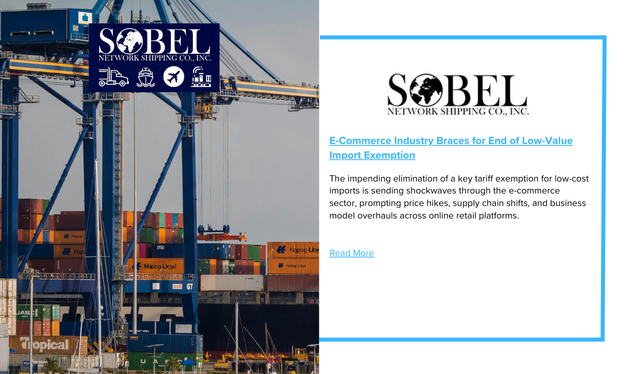The impending elimination of a key tariff exemption for low-cost imports is sending shockwaves through the e-commerce sector, prompting price hikes, supply chain shifts, and business model overhauls across online retail platforms.
The provision—known as de minimis—has long exempted shipments valued under $800 from import duties. This policy is now being revoked for goods originating from certain Asian manufacturing hubs, with implementation set to begin just after midnight Eastern time on May 3. The change will subject most small parcels to a steep base tariff, alongside product-specific levies depending on their category and materials.
The exemption had played a major role in fueling growth for direct-to-consumer e-commerce, particularly for platforms delivering high volumes of low-cost goods to U.S. consumers. U.S. Customs data shows that de minimis shipments surged to over 1.3 billion entries in fiscal year 2024—more than doubling from levels just four years prior.
With the exemption ending, major players are already adjusting prices, while small to midsize online retailers warn that the cost burden could jeopardize their operations. A recent industry survey found that more than 80% of e-commerce executives believe the removal of de minimis could threaten the viability of their business.
In response, many retailers are exploring options such as relocating inventory to domestic warehouses, restructuring fulfillment routes, and increasing prices on imported items. Some businesses are accelerating bulk imports and opting to clear inventory before the new rules take effect.
For those continuing to import directly, tariff calculations based on retail prices could push total duty obligations to levels that exceed the value of the goods themselves. For example, a $175 item shipped cross-border could face more than $300 in cumulative tariffs depending on origin, material, and classification.
To mitigate these effects, some sellers are shifting their fulfillment operations within the U.S. where bulk imports can be taxed based on wholesale value, easing the margin hit. Others are segmenting inventory based on origin, continuing to leverage de minimis eligibility for goods sourced from countries not yet affected by the policy change.
Retailers are also preparing for the possibility that the exemption will eventually be removed for all countries, not just those currently targeted. This has prompted many brands to fast-track strategic logistics changes, including sourcing diversification and long-term warehousing decisions.
This policy shift follows recent government action aimed at rebalancing trade flows and increasing inspection of foreign parcels. Logistics providers and postal carriers have had to adjust operations quickly to accommodate new customs requirements and inspection frameworks.
As online platforms respond in real time—some by promoting domestic inventory labeled “no import charges”—the full impact of the de minimis rollback is still unfolding. E-commerce sellers across the board are bracing for increased costs, potential delivery delays, and a new wave of compliance demands that could reshape the landscape of cross-border retail.


